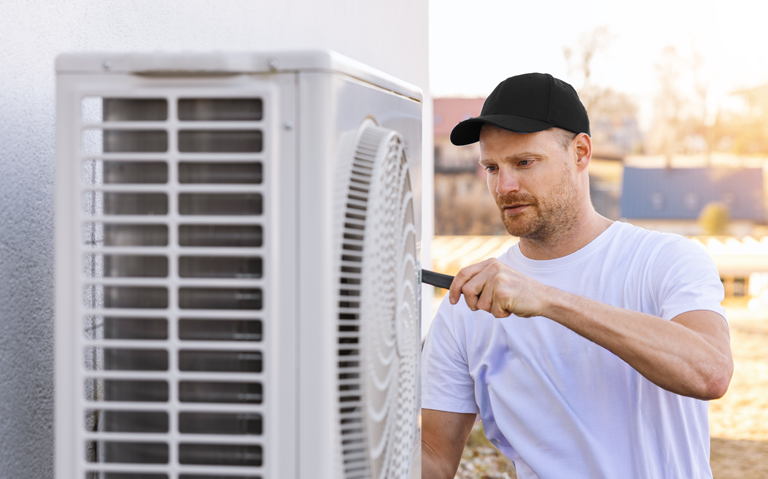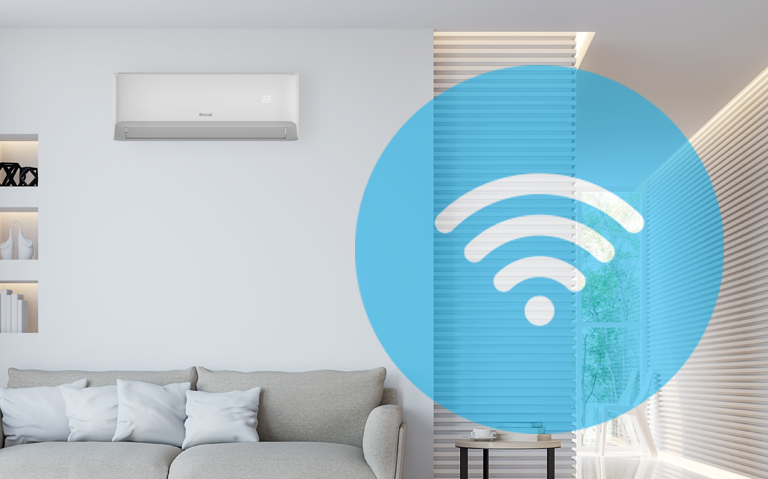When creating the perfect temperature for sleeping, a heat pump will be your new best friend. Not only will it quickly heat and cool your home for optimal comfort, but it will also save you a heap of money when you pay your power bills because of its high energy efficiency!
As the temperature drops overnight, leaving your heat pump running can be a reliable way to make sure your room temperature stays the same for better quality sleep. After all, no one likes waking up being too hot or too cold. We know the more we use our appliances, the more wear and tear they get – so that begs the question, should you leave your heat pump on all night? Read on for the answer.
Can a heat pump stay on all the time?
Yes, your heat pump can stay on all the time. But should it? Heat pumps are specifically designed to be as energy efficient as possible when running for long periods of time. Leaving your system on to heat your home can often be the wiser choice instead of turning it off & on again, as it uses less energy to maintain a room’s temperature but more energy to change it.
However, if you’re leaving the room for more than a couple of hours, it’s best to turn your system off. Keeping your heat pump on when it’s not needed can lead to even higher power bills and cause your system to break down faster than it should.
If you’d like return to a perfectly warm home, instead of leaving your heat pump on all day, you can set the programmable timer instead! These work by turning your heat pump on or off at pre-determined times chosen by you. Rinnai Heat Pumps also come with a Wi-Fi phone app, allowing you to adjust your heat pump settings from anywhere, at any time. If you aren’t sure which Rinnai Heat Pump best suits you, we’re here to help.
Can you sleep with heat pump on?
Yes – sleeping with your heat pump on at night means you can keep your room temperature the same while the temperature drops outside. No more waking up in the middle of the night freezing cold! However, it’s also important to remember the noise level of your heat pump as it’s running, so it doesn’t disturb or disrupt your sleep.
Rinnai High Wall Heat Pumps are perfect for running all night – not only are they wonderfully quiet, but they also come with their own dedicated, intelligent Sleep Mode designed for a restful night’s sleep. This smart feature works by regulating the heating and cooling of the system with two-way temperature control and can also be manually changed to suit your unique sleeping temperature.
What temperature should I leave my heat pump on overnight?
We recommend between 16 to 18 degrees Celsius, but no lower than 15 degrees Celsius. Start in this range, and experiment to find the perfect temperature for you.
Generally, the best temperature range for your heat pump will vary between the seasons. It’s recommended that your heat pump runs between 18 – 22 degrees Celsius in cooling mode during the summer to save energy. Your home won’t cool down any quicker if you set the temperature lower, but your unit will work a lot harder – meaning you’ll use more energy. To get the most out of your heat pump in winter, we also recommend setting the temperature to 18-22 °C for optimal energy efficiency and cosiness. Learn how changes in temperature can affect you.
When setting your heat pump’s temperature overnight, it is better to choose a temperature that is lower to what you set during the day. That’s because our bodies don’t need as much heat while we’re sleeping compared to when we’re awake. We recommend between 16 to 18 degrees Celsius, but no lower than 15 degrees Celsius.
Does turning down heat pump at night save money?
Yes – it normally does. But not always.
You might wonder how a heat pump works and if turning down the temperature really does save you more money. When you lower the temperature on your heat pump, your system does not need to use as much energy to maintain that temperature. This could help reduce excessive energy waste – however, this will also depend on the size of your heat pump, the size of your room and the temperature difference between indoors and outdoors.
Turning down your heat pump at night and using your heat pump less in general means the system goes through less wear and tear. This helps to potentially extend your heat pump’s lifespan and reduce how often it needs to be serviced, saving you more money. If you have a heat pump, check out when your heat pump requires servicing.
If you’re investigating options to keep your home warm and dry, discover the Rinnai home heating range, or dive into our ducted or highwall heat pump options. If you don’t know where to start, this guide walks you through how to choose a home heating solution.

















